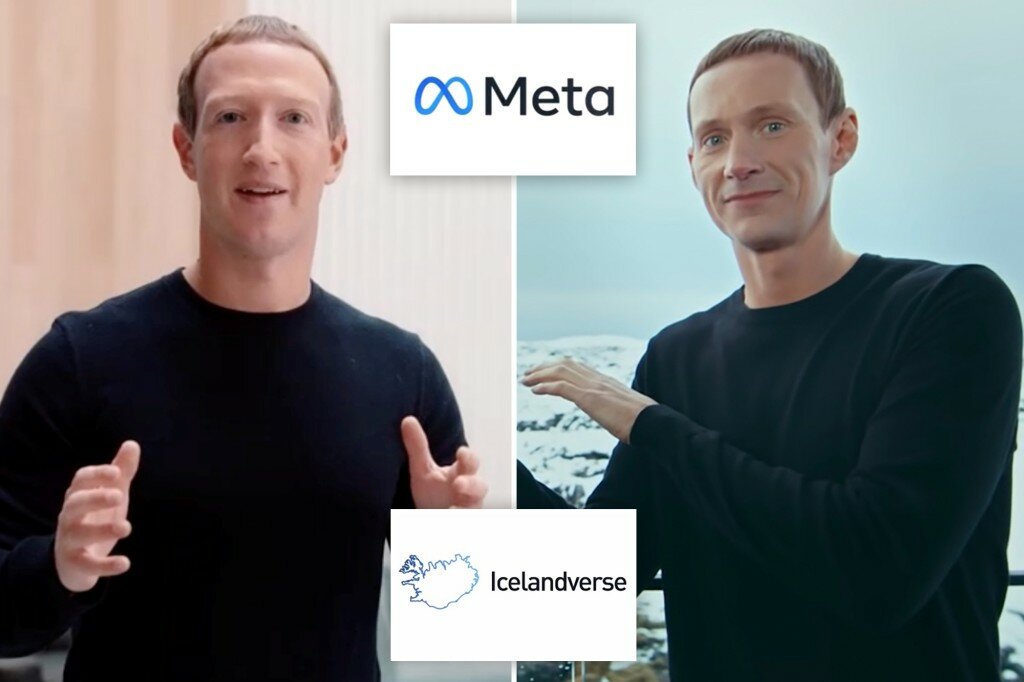A new marketing campaign for Icelandic tourism takes aim at Facebook founder Mark Zuckerberg, mocking his recent video announcement of his company’s name change to Meta.
The video, released by Inspired by Iceland, a public-private entity that promotes Iceland and its products, featured a Zuckerberg lookalike named “Zack Mossbergsson” and identified as Iceland’s chief visionary officer.
Throughout the parody, Mossbergsson pokes fun at Zuckerberg’s infamous stiffness.
“Hello and welcome to this very natural setting,” Mossbergsson deadpans to the camera.
“Today I want to talk about a revolutionary approach to connect our world without being super weird.”
“Some said it’s not possible. Some said it’s out of reach. To them, we say it’s already here. Seriously. Look, it’s right here,” he adds while gesturing out the window to a snow-covered Icelandic landscape.
Mossbergsson goes on to introduce the “Icelandverse,” which is, as he describes it, “enhanced actual reality without silly looking headsets,” — a clear dig at Zuckerberg’s ambitions for a so-called metaverse virtual reality world.


“It’s completely immersive with water that’s wet,” Mossbergsson goes on, adding that the “Icelandverse” comes complete with “skies you can see with your eyeballs.”
“The Icelandverse is unlike any other open-world experience with ‘-verse’ in name, because it’s real. Plus, you don’t need a funny-looking VR headset,” the caption to the video on YouTube reads.
Zuckerberg responded to the video on Facebook, taking it in stride.
“Amazing. I need to make a trip to the Icelandverse soon. Glad you’re wearing sunscreen too,” he said, referring to one scene in the video in which Mossbergsson’s face is caked in sunscreen, mimicking an embarrassing incident for Zuckerberg last year.

The video had racked up more than 274,000 views on YouTube by late Friday.
“Metaverse” has become a major talking point in corporate America since Facebook announced its rebrand last month, with companies from Nike and Disney to dating app Bumble talking about how they’re going to capitalize on what some believe will be the next evolution of the internet.


The term, coined in the 1992 sci-fi book “Snow Crash,” refers to a next-generation internet access through augmented and virtual reality hardware.
In a demo introduced by Zuckerberg last month, a user wearing a headset walked the streets of ancient Rome, while another attended a virtual reality rock concert and afterparty.
Zuckerberg said the company plans to spend billions of dollars on developing the metaverse, and added that he hopes to have 1 billion people join the virtual world in the next ten years. Ad dollars from Facebook’s core products will supplement the development of the augmented reality project, which the company has said will not be profitable for years.

Representatives for Facebook did not immediately return The Post’s request for comment on the “Icelandverse” video.


